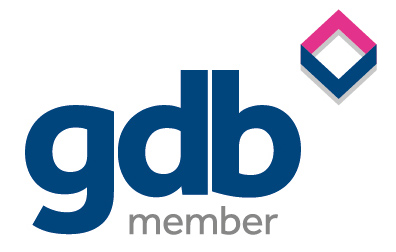Harvey John
Unit 2 Ferry Wharf
Hove Enterprise Centre
Basin Road North
Portslade, East Sussex
BN41 1BD
Over the years, I’ve had many candidates ask how they should approach the question of salary expectations in job interviews.
Some shy away from discussing money, fearing they might seem greedy or undersell themselves. Others have inflated expectations due to earning higher market rates in their current roles.
It can be a gruelling question to answer, as your response poses a real risk of influencing your chances of success post-interview.
So here are some useful tips for approaching the question:
Prepare and research in advance
You should know what the salary range is for the role before the interview. This should have been advertised when you applied or been communicated by your recruiter. If some time has passed, make sure you remind yourself. Don’t respond to the question with ‘Can you remind me what this role was paying?’ which suggests a lack of preparation or interest.
If dealing with a recruiter, probe them. Recruiters can often comment on the client’s salary flexibility or approach from their history of working with them. They may also comment on how your salary expectations compare to other candidates the client is meeting. Additionally, they can give their insight into local market rates for similar roles. You may be hoping for a £3k+ increase on your £32k salary, for example. However, if you remember the company pitched the role at £40-45k and your recruiter believes you’re currently underpaid, you can be strategically pitched higher.
In addition, your recruiter – or the company’s HR department – can provide details on the wider offering of the position. Employer pension contributions, study support, additional bonuses, private medical, free parking, and life assurance all have financial value and should be considered.
Evaluate all the above alongside assessing your current costs and any potential increases, such as additional travel expenses. Don’t leave it until after the interview to realise your train fares will increase by £1000, or there’s no study support, or your pension contribution will drop by 3%, or you’ll lose holiday!
Lastly, think about how much you really want this role and the non-financial benefits it might offer. Will it provide a big step up in seniority and excellent career experience? Is it closer to home meaning you can see more of your family? How much are these things worth to you?
All the above research should help effectively weigh everything up and come to an educated decision on where to pitch yourself.
Offer a range
Providing a desired salary range rather than an exact figure gives both parties flexibility. If it’s a very close call between you and another candidate but you stated £30k and they stated £28-30k, their flexibility could give them an advantage. From the exercise above, you should be able to determine the minimum salary that still makes the move worthwhile. Don’t go below this and accept that if they offer another candidate less, then the role wasn’t right for you anyway. Providing a range should never undersell you, but rather leave you open to negotiation.
Sell yourself as part of your answer and remain confident
Rather than blurting out figures, start with a quick recap of why you feel you’re a great candidate for them.
If you’ve run through the candidate requirements and know you ‘tick every box’, bring that to their minds at this point. Draw parallels to your CV and any career achievements. If you know there’s a particular focus on finding someone strong in a certain area – an area you’re highly skilled in – bring it up. It’s important to have evidence of what they will get in return for your salary rather than just generally saying you’re great – evidence over arrogance is the tact here.
Stay confident in your answer and don’t change your mind. If they pause after, don’t panic. Closing with ‘I believe my salary expectations are in line with my experience and qualifications’ can be a powerful way to conclude your proposal.
Be careful of discussing your current salary
There’s been much recent publicity about gender pay gap issues and salaries not matching inflation. One way to combat this is for clients to become accustomed to offering salaries purely based on the level of vacancy and related market rates rather than being influenced by candidates’ current earnings.
If asked, you can (politely) push back on this question. This may be especially tactful if you’re aware you’re currently underpaid. Refer the interviewer to the role they’re hiring for, their budget, and your desired salary range. If they push for an answer, highlight that you’re underpaid and this is backed up by your recruiter and research. If they use this information to still make you a low offer, you probably don’t want to work there!
Use your recruiter to manage salary discussions
Part of a recruiter’s role is to manage salary negotiations and get their candidates the best package they can. If represented by an agency, you do have the option of asking not to answer the question by telling the interviewer you’d like salary discussions to be managed by your recruiter. Several candidates have used this tactic over the years and I’ve never had a client comment on it negatively. It’s important here to not appear uncomfortable about the question but rather politely deflect and remain positive and personable.
Your recruiter will be able to provide the company with evidence to back up your expectations, such as similar roles they’re currently working on and similar candidates they’ve recently placed. They may also have useful insight to facilitate a better offer for you, such as knowing you’re the preferred candidate out of all interviewees. Being an intermediary who isn’t in an interview situation can also allow the recruiter to be firmer in their approach than may feel comfortable to you at the time.
Hopefully, the above provides some helpful guidance for interviewing candidates. If you’d like to discuss any of the topics further – please do reach out to the team at Harvey John.
Author

She’s highly attentive to every assignment ensuring a quick moving and effective process in which no stone is left unturned in her search for the perfect match. An understanding and dedicated recruiter, she leverages her industry knowledge and network to deliver the best results for clients and candidates alike.







